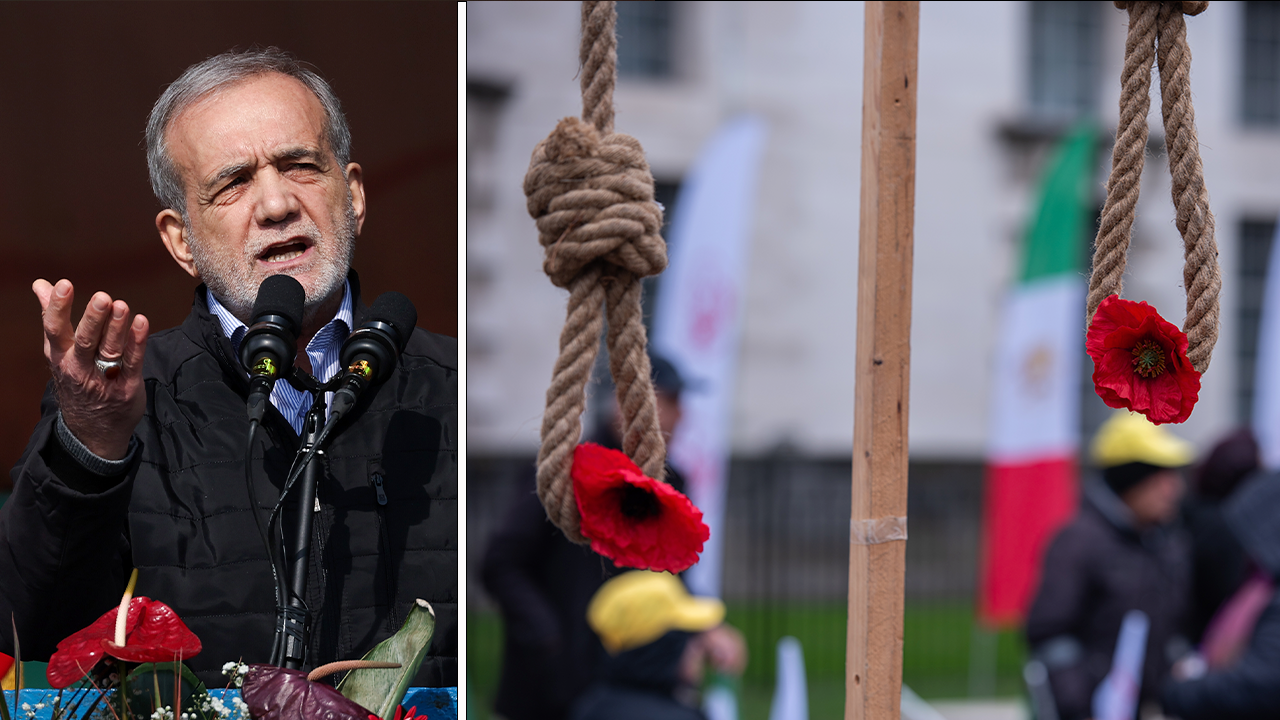Iran’s executions ramp up under Pezeshkian as US pushes nuclear talks

Iran has carried out 1,051 state executions since President Masoud Pezeshkian took office on July 8, 2024 – a surge that security experts say the U.S. must weigh as it resumes nuclear negotiations with Tehran. The National Council of Resistance of Iran (NCRI) reported this figure to Fox News Digital, representing a more than 20% increase from the number of Iranians executed in 2023, which saw 853 individuals killed by the regime.
In his bid for the presidency, Pezeshkian aligned himself with moderates and reformists who were outraged by the regime following the 2022 death of Mahsa Amini and the subsequent protests. During a televised debate in 2024, just days before his election in a record-low turnout, he acknowledged the discontent within Iranian society due to high prices, treatment of women, censorship of the internet, and other issues. Many hoped that Pezeshkian, who expressed a willingness to engage in nuclear negotiations with the U.S., would bring about much-needed reforms in the oppressive regime.
However, despite these hopes, executions in Iran have only increased, targeting those arrested for drug-related offenses, dissent, and involvement in the 2022 protests. Shockingly, there has been a rise in the number of women and individuals who were minors at the time of their alleged offense being executed. The NCRI stated that the regime’s brutality reflects the desperate attempts of Supreme Leader Ali Khamenei to prevent a nationwide uprising and the overthrow of his regime through killings and executions.
Amnesty International revealed that girls as young as 9 years old and boys as young as 15 can be sentenced to execution in Iran. The organization reported that at least 73 young offenders were executed between 2005 and 2015, with at least 160 people currently on death row for crimes committed while under the age of 18.
As the U.S. seeks to secure a nuclear deal with Iran, officials are urging the international community to consider Iran’s record of human rights abuses in negotiations with the regime. Maryam Rajavi, president-elect of the NCRI, has called for any dealings with the regime to be conditioned on the cessation of torture and executions, and for Iran’s human rights violations to be referred to the U.N. Security Council. She has also urged the international community to hold Khamenei and other regime leaders accountable for crimes against humanity and genocide.
Despite the calls for action, students in Iran face a real threat for opposing the regime, as Pezeshkian and Iran’s minister of education, Alireza Kazemi, have deployed State Security Forces to suppress any dissent among the youth. However, Rajavi has called on the Iranian people, especially the youth, to join the “No to Execution” movement and protest against the ongoing human rights violations in the country.
In conclusion, the surge in executions in Iran under President Pezeshkian’s administration highlights the urgent need for the international community to address the regime’s atrocities and hold its leaders accountable. As nuclear negotiations with Iran continue, it is crucial to prioritize human rights concerns and ensure that justice is served for the victims of the regime’s brutality.




